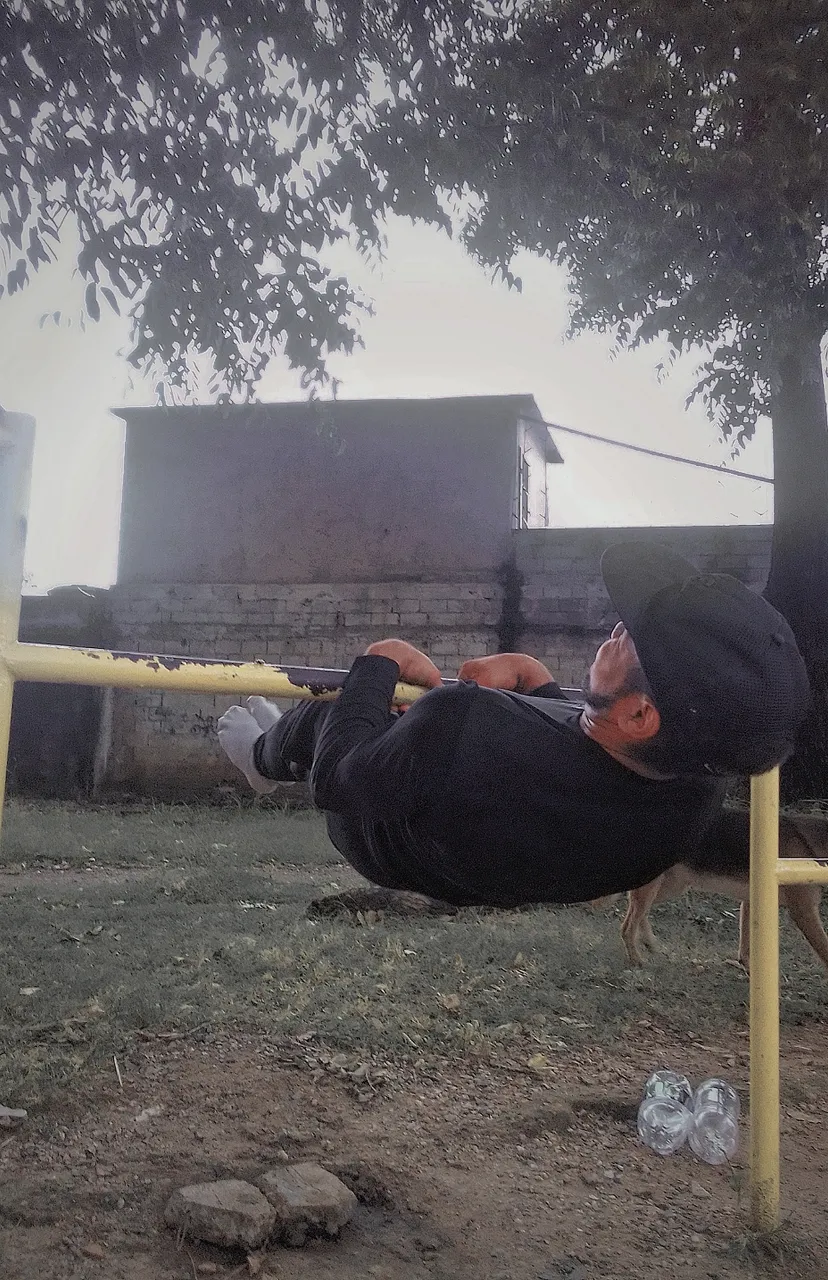Desmotivación al entrenar y como superarla
Demotivation when training and how to overcome it

Te es frustrante y humillante tener que entrenar con un rendimiento más bajo que el de costumbre.
Te sientes cansado y agotado antes de terminar el entrenamiento pero sigues teniendo fuerza muscular.
Sientes que tu mente esta en otra parte pero no sabes porque.
Te distraes y solo piensas en dejar la rutina.
You find it frustrating and humiliating to have to train with lower performance than usual.
You feel tired and run down before you finish your workout but you still have muscle strength.
You feel like your mind is somewhere else but you don't know why.
You get distracted and only think about leaving the routine.
¿Te sientes agobiado por los entrenamientos, o por una situación que no controlas?: No puedes tener el control de todas las situaciones, querer controlar todo es una necesidad de sentir poca confianza en ti o en los demás. Si sabes que puedes hacer bien una tarea o actividad, enfócate en una cosa pequeña, desarrolla, culmina lo mejor que puedas y después enfócate en otra. (La atención detalles hacen la diferencia)
¿Sientes que estas flaco aunque todos te dicen que tienes mucho músculo?: Ok, cuando vemos un objeto o persona, más que simplemente notar las características principales, también podemos percibir un sentimiento o reacción emocional. Esta última, de hecho, es la que marca más nuestra forma de ver el mundo. Si te miras al espejo 24/7, vives comparándote consciente o inconscientemente con los demás, vas a tener expectativas distorsionadas porque tu enfoque emotivo de el “cómo te ves” está basado en cómo se ven los demás. Lo mejor que puedes hacer es compararte contigo mismo, siempre y cuando tengas las mismas metas.
¿Me lesione y/o deje de entrenar un tipo y ahora no tengo el mismo rendimiento?: En el punto anterior el compararte contigo mismo es positivo siempre y ando tomes en cuenta tu situación y sepas muy bien cuál es tu nivel. Recuerda que es tu proceso y tu vida. La rutina de entrenamiento se debe adaptar a tu nivel no tú a ella.
La idea es que te sientas a gusto con tus resultados y tu progreso, y que sin importar las circunstancias lo que haces lo haces por y para ti. Valora y cuida a tu cuerpo.
Do you feel overwhelmed by training, or by a situation that you do not control?: You cannot have control of all situations, wanting to control everything is a need to feel little confidence in yourself or in others. If you know that you can do a task or activity well, focus on one small thing, develop, complete it to the best of your ability, and then focus on something else. (Attention to details make the difference)
Do you feel that you are skinny even though everyone tells you that you have a lot of muscle?: Ok, when we see an object or person, more than just noticing the main characteristics, we can also perceive an emotional feeling or reaction. The latter, in fact, is the one that most marks our way of seeing the world. If you look at yourself in the mirror 24/7, you live comparing yourself consciously or unconsciously with others, you will have distorted expectations because your emotional approach to "how you see yourself" is based on how others see themselves. The best thing you can do is compare yourself to yourself, as long as you have the same goals.
I got injured and/or stopped training a guy and now I don't have the same performance?: In the previous point, comparing yourself with yourself is positive as long as you take your situation into account and know very well what your level is. Remember that it is your process and your life. The training routine should be adapted to your level, not you to it.
The idea is that you feel comfortable with your results and your progress, and that regardless of the circumstances, what you do, you do it for yourself. Value and take care of your body.
